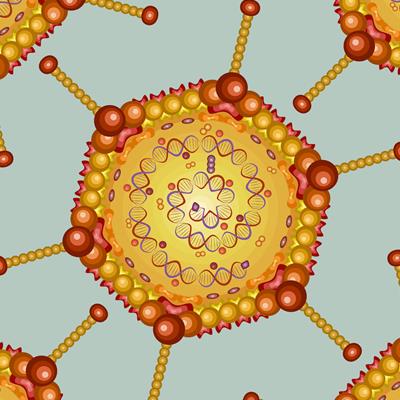February 11, 2021 -- Dyno Therapeutics recently highlighted an article in Nature Biotechnology that demonstrates the use of its artificial intelligence (AI) platform to generate diverse adeno-associated virus (AAV) capsids with functional variants capable of evading the immune system.
With an estimated 50%-70% of the human population having preexisting immunity to natural AAV vectors used in gene therapies, a large portion of the patient population is ineligible to receive gene therapies that rely on capsids as the delivery mechanism. Therefore, overcoming the challenge of preexisting immunity to AAV vectors is a major goal in gene therapy.
The paper describes the rapid production of a large library of distinct AAV capsid variants designed by machine-learning models. Around 60% of the variants were considered viable. The study demonstrates the potential of machine learning to affect the design and function of the variants.
We must ensure that "capsid variants remain viable for packaging the DNA payload," said Sam Sinai, PhD, Dyno co-founder. "With conventional methods, this diversification is time- and resource-intensive, and results in a very low yield of viable capsids. In contrast, our approach allows us to rapidly unlock the full potential diversity of AAV capsids to develop improved gene therapies for a much larger number of patients."
The research utilizes Dyno's proprietary CapsidMap platform, which uses AI technology to engineer capsids, the cell-targeting protein shell of viral vectors. The platform uses DNA library synthesis and next-generation DNA sequencing to measure in vivo gene delivery properties in high throughput. Together, a comprehensive map can guide the design of novel capsids optimized for gene therapy.
Copyright © 2021 scienceboard.net







